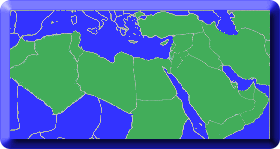
Topics in Middle Eastern and North African Economies
Document Type
Article
Publication Date
9-1-2017
Journal Title
Topics in Middle Eastern and North African Economies
Volume
19
Issue
2
Publisher
Middle East Economic Association and Loyola University Chicago
Abstract
As global funds flow at unprecedented rates, consumers in developing countries have increased access to financial markets and find themselves handling more complex financial tools. In such a setting, consumers may be overexposed to financial risks. In this respect, increasing financial literacy levels of consumers has become essential, and assessing the financial literacy of the population is a key ingredient of any policy to do so. Using an international survey, we study financial literacy in Mexico, Lebanon, Uruguay, Colombia and Turkey. After establishing financial literacy levels, we identify the least financially literate groups in each country to facilitate targeting of public policy. We find that females, younger adults and individuals who cannot read or write in the official language of their country of residence have lower financial literacy scores. In line with the previous findings in the literature on the developed countries, our results indicate that financial literacy increases with education. In Mexico and Turkey, there are large regional differences that must be addressed.
ISSN
2334-282X
Recommended Citation
Kokkizi, Melike; Karakurum-Ozdemir, Kamer; and Uysal, Gokce, "Financial literacy in developing countries". Topics in Middle Eastern and North African Economies, electronic journal, 19, 2, Middle East Economic Association and Loyola University Chicago, 2017, http://www.luc.edu/orgs/meea/
Creative Commons License

This work is licensed under a Creative Commons Attribution-Noncommercial-No Derivative Works 3.0 License.
Copyright Statement
© 2017 The Authors



Comments
Presentation of the articles in the Topics in Middle Eastern and North African Economies was made possible by a limited license granted to Loyola University Chicago and Middle East Economics Association from the authors who have retained all copyrights in the articles.